Gertrude Létourneau (Trudy) is a professional singer and classical flutist who has worked for 16 years at a Veterans’ Health Centre as part of a music program for the residents, many of whom have dementia.
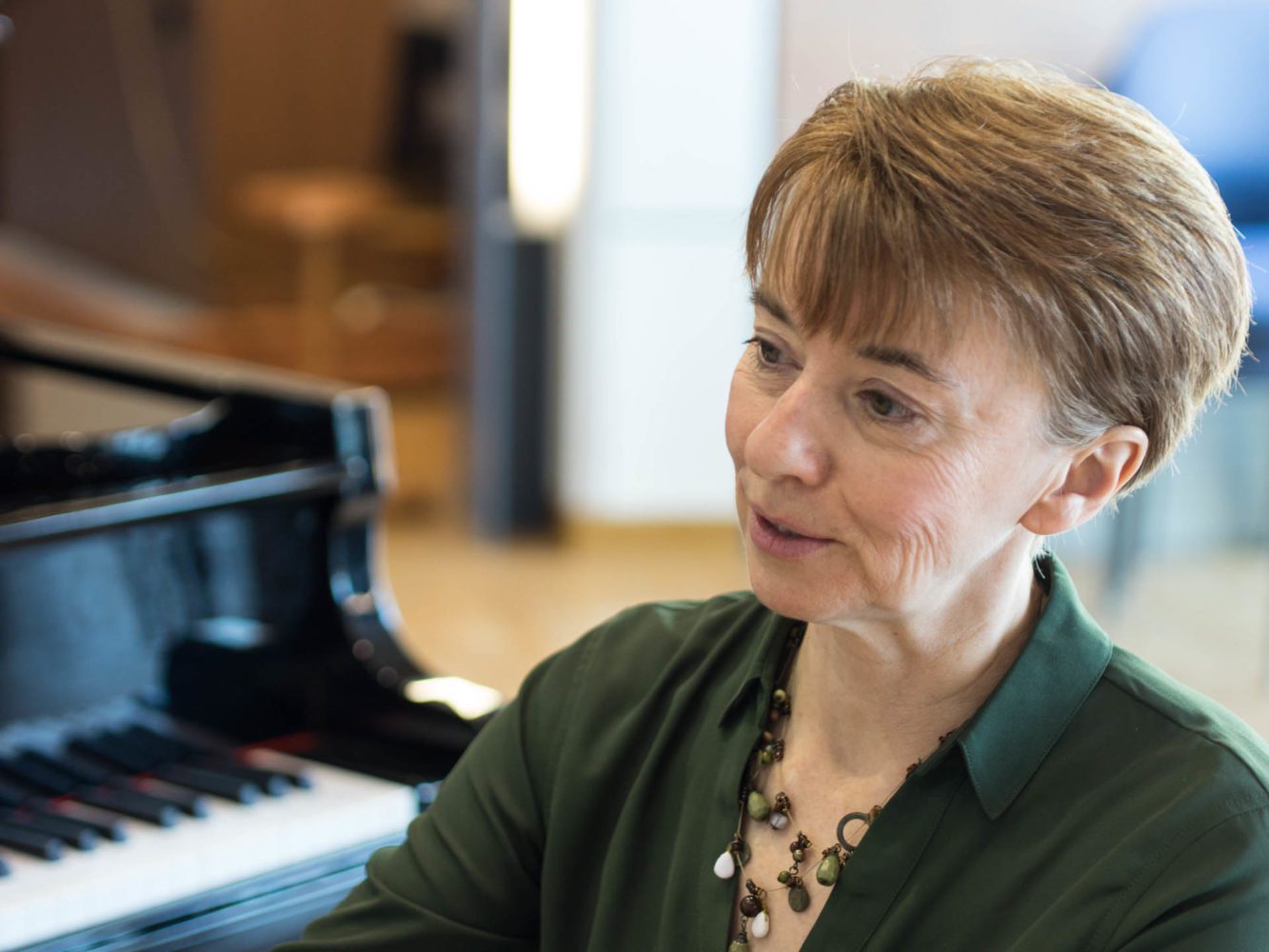
“As I see it, many of our residents are trapped in a bubble of limitations. My role is to take them out of that bubble, and through music, reach a part that’s still them. Entirely them.”
“Music is great for that. How can a person who has advanced Alzheimer’s disease take the guitar and anticipate what chord is going to come next? They don’t play the way they used to, but it’s still very much in them, and that’s fascinating and inspiring.”
“I’ve seen more than one resident who couldn’t talk or have a conversation, come alive with music. There was a gentlemen, a politician. He would stand by the piano and go ‘Dududududu.’ That’s all he could say. But then I would start singing ‘J’attendrai le jour et la nuit…’ and the words would come out. He would sing the words!”
There are people who can’t talk, but when I sing Christmas carols you see their lips move. When you can’t talk with your loved one anymore, if you can sing together and hold hands, that’s a nice thing.
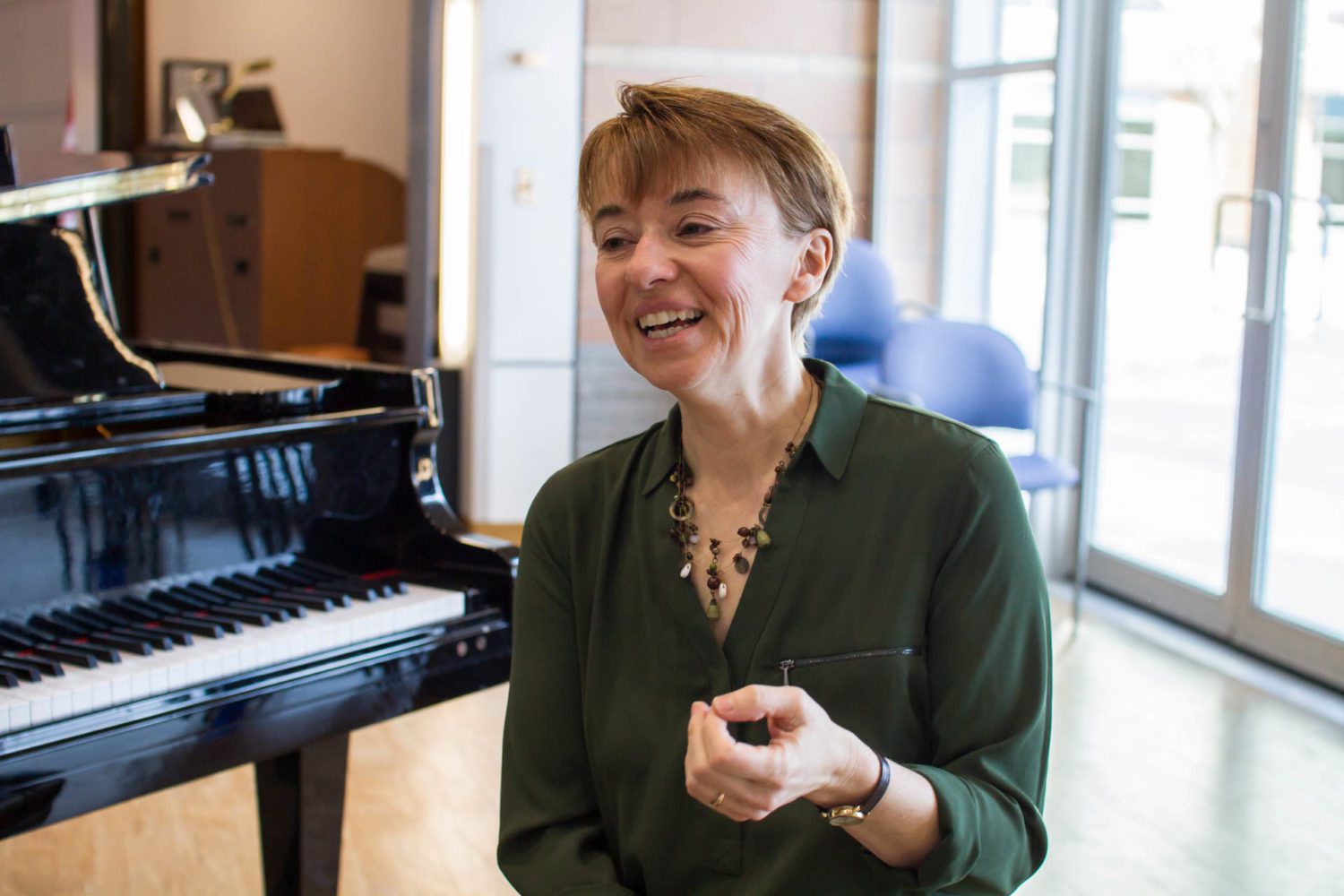
Have any of the residents been musicians themselves?
“We had a fantastic professional saxophone player who had dementia. All the jazz musicians in town knew him. When I discovered who he was, I got him to pick up his saxophone again. He didn’t want to. But when I would play Blue Moon on the piano, he would start to play. Because that’s what a musician does. When the piano starts, you start to get ready for your tune. So, that was exciting! I got five of his old friends who were still active to come, and we did a jazz session in the courtyard.”
“Another time I had a country guitar player. It’s amazing!”
Residents can have such severe dementia that they look for their hat, they look for their car, they look for their wife. But you put a guitar in their arms and it’s like… it’s them!
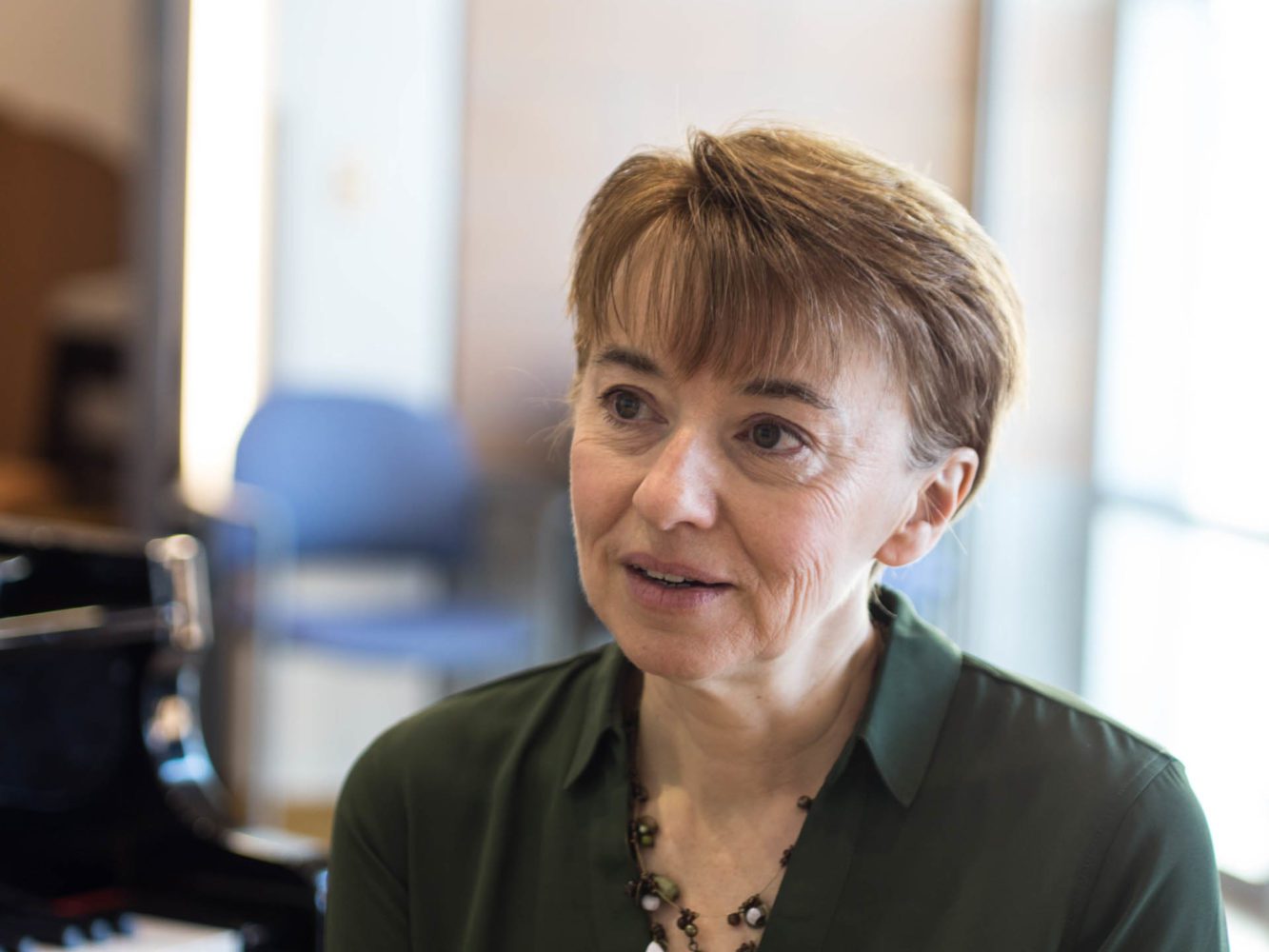
“One resident was not interested in music at all. He was talking about God and religion. He said he was dying. The whole conversation was about religion and death. I said, ‘Before I go, I just want to play a composer – Johann Sebastian Bach.’ The resident knew about him; he was a man of the church. I played Jesus Joy of Man’s Desiring, and he said, ‘Oh, I like that!’ He allowed me back to see him. He said he liked that I didn’t ask him to do anything; other people try to make him walk and stuff like that.”
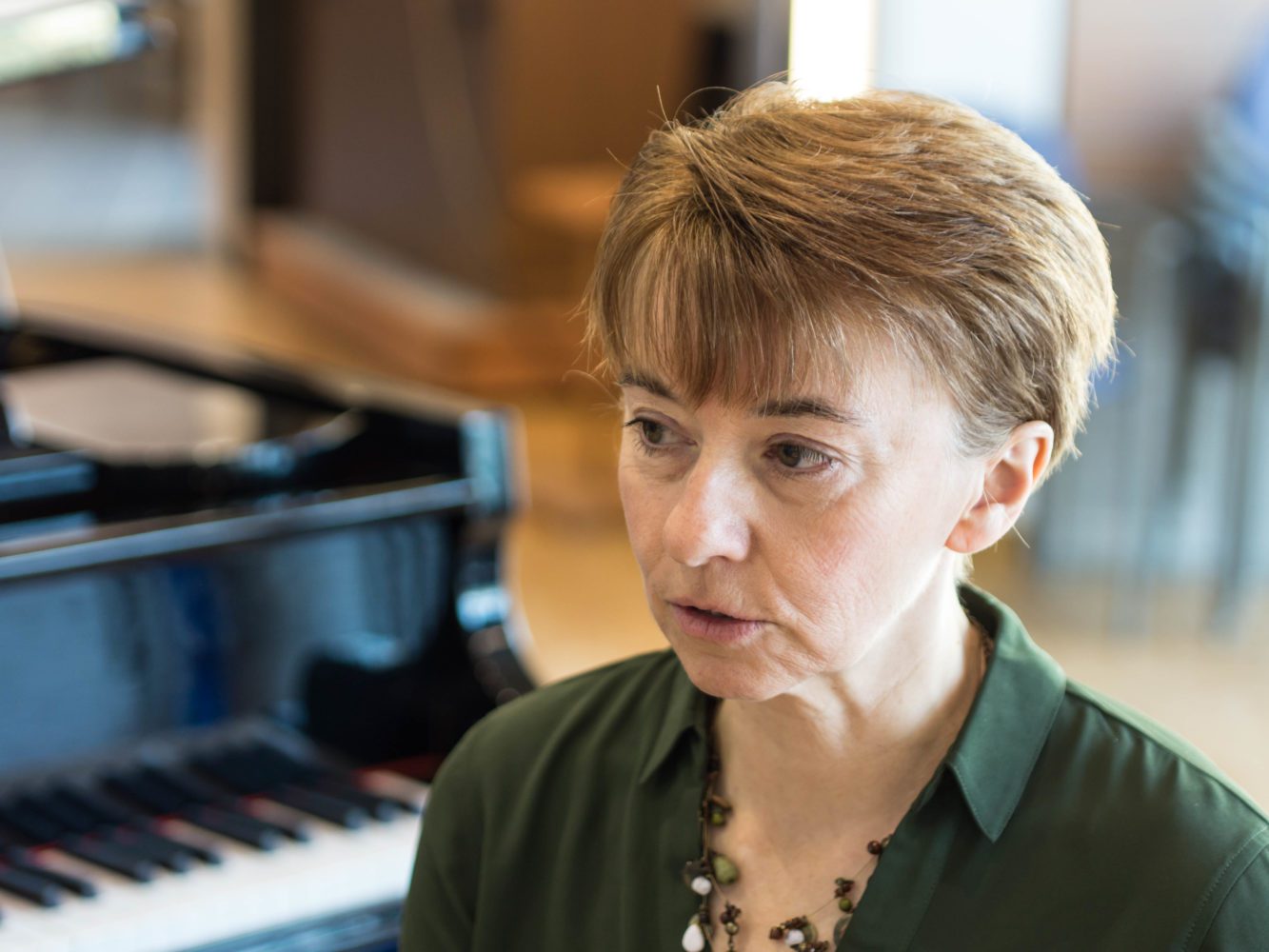
Many residents die, right?
“They all die! Oh my gosh, I have lost over a thousand people since I have worked here. I allow myself to cry. It’s hard! And now they come older and frailer, so they die more quickly. But if they are here for a lesser time, sometimes I am not as attached, you know? Because when they are here for years… oh my God!”
“I will tell you a story. I will try to say this without crying. There was a resident, a singer who had moments where he was very depressed. Another resident loved music with Trudy – he wouldn’t go to his appointment on Thursdays. ‘No, no, Thursday afternoon is music with Trudy. I am not going to the dentist!’ We had a good relationship.”
“The second resident was dying, so I went to see him for the last time. I left the room crying. The first resident, the singer who was sometimes depressed, he was really happy that day, and he saw me down the hall and said, ‘Trudy, what are you doing?’ I sat beside him on the bed and said, ‘Jack is dying.’”
And then he said, ‘I have a song for you,’ and he grabbed my hand and sang, ‘You will never know just how much I love you.’ Oh my God! He didn’t try to console me, he just sang. He did to me what I would do to him!”
“The next day I went to thank him. He was in bed curled up, all depressed. The nurse said, ‘Don’t go see him. He doesn’t want to get up.’ I decided to go anyway. I said, ‘It’s Trudy. I just came to thank you.’ ‘For what?’ ‘Yesterday I was sad and you sang to me.’ Then I sang to him, and he started to grin. With the song I had opened the door just a crack. After, I don’t know, half an hour, he said, ‘Okay, I am going to get up now.’”
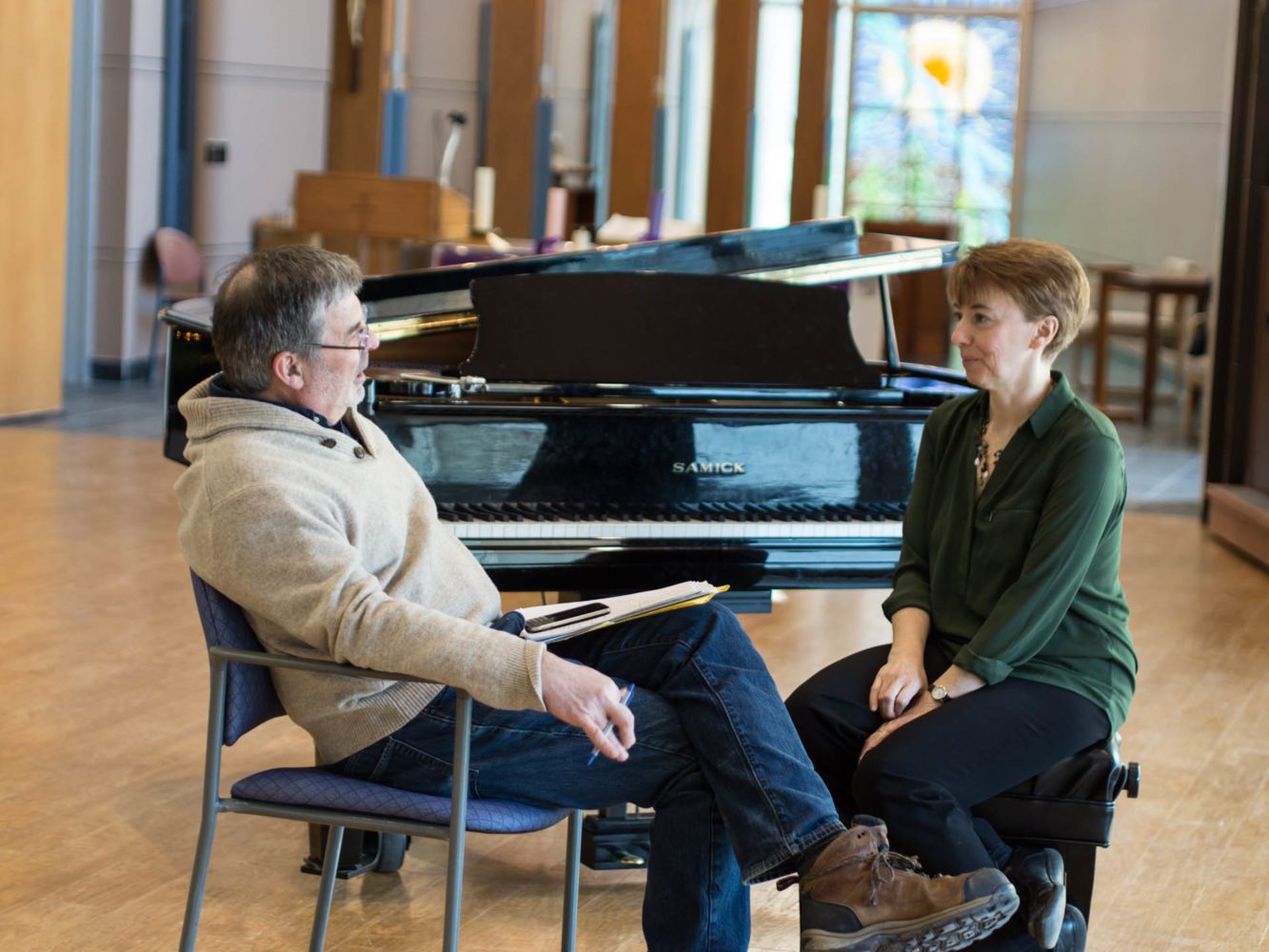
What do the veterans give you?
They give me more than I give them. They give me an appreciation of life! How fortunate I am to do what I do. They give me so much love.
“A lot of them are lonely. Their families are often not here. We’re their family in a way.”
“And they give me songs. All the songs I know come from them. I am from Quebec – I didn’t know It’s A Long Way to Tipperary!”
“Some clients are here because of physical limitations. So, they may be 98, but they are all there mentally. They can tell me who sang what song in what movie. They bring me songs and that’s how I have learned the repertoire.”
Are there favourite songs that they ask for?
“The World War II vets are in their late 90s. I have one who is 102. They ask for the songs of the war. It’s A Long Way to Tipperary, Pack Up Your Troubles. Let Me Call You Sweetheart. Songs that are 100 years old. But residents who are cognitively better are sick of war songs. That’s when we get into Frank Sinatra, Bing Crosby. They love Edith Piaf.”
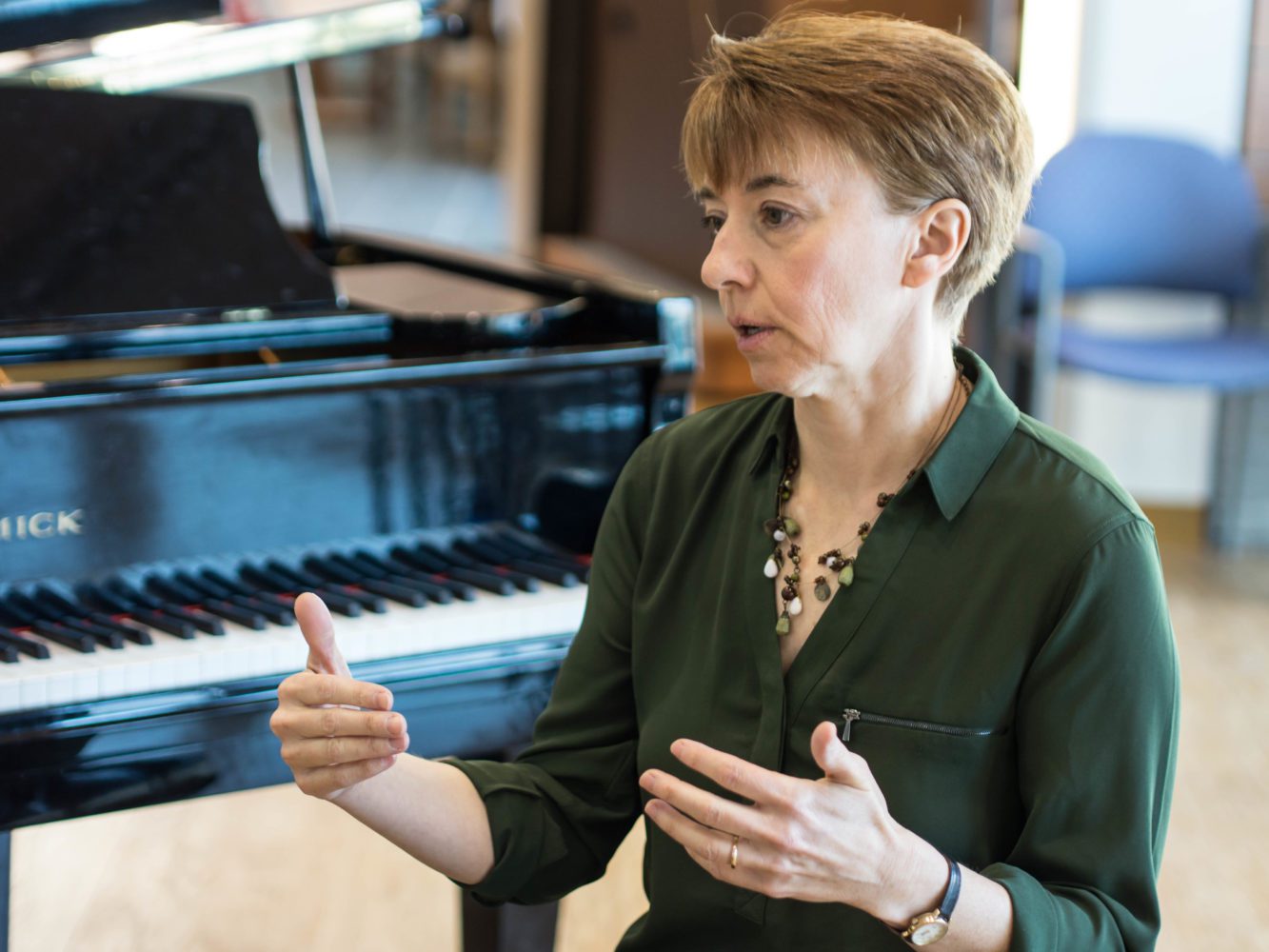
The purpose of the music is really to free the joy inside. I used to say that I bring joy to the residents. But no. The joy is inside them. The music is the tool to free the joy.
“The beauty of working here is that I come back, sometimes twice a week, in the units with dementia. Even if the residents don’t remember who I am and what I am doing every time I come, I am hoping that I kind of leave an imprint. One time I walked into a dining room and a resident saw me, someone I had been seeing twice a week for three or four years. He looked at me and said, ‘I like you.’”
“What’s great about working here, instead of being an outside entertainer, is that you know the residents, you know their favourite songs. And you work as a team. Once a nurse was trying to change a bandage and the resident didn’t want to take his sock off. The gentleman was French speaking and I distracted him by chatting away and singing in French. So, we can help one another.”
“Hopefully if residents are active and engaged in the music they might eat better, maybe sleep better, maybe need less pills. Maybe. Maybe not. But you know, ultimately it’s for their wellbeing.”


The comments section is closed.